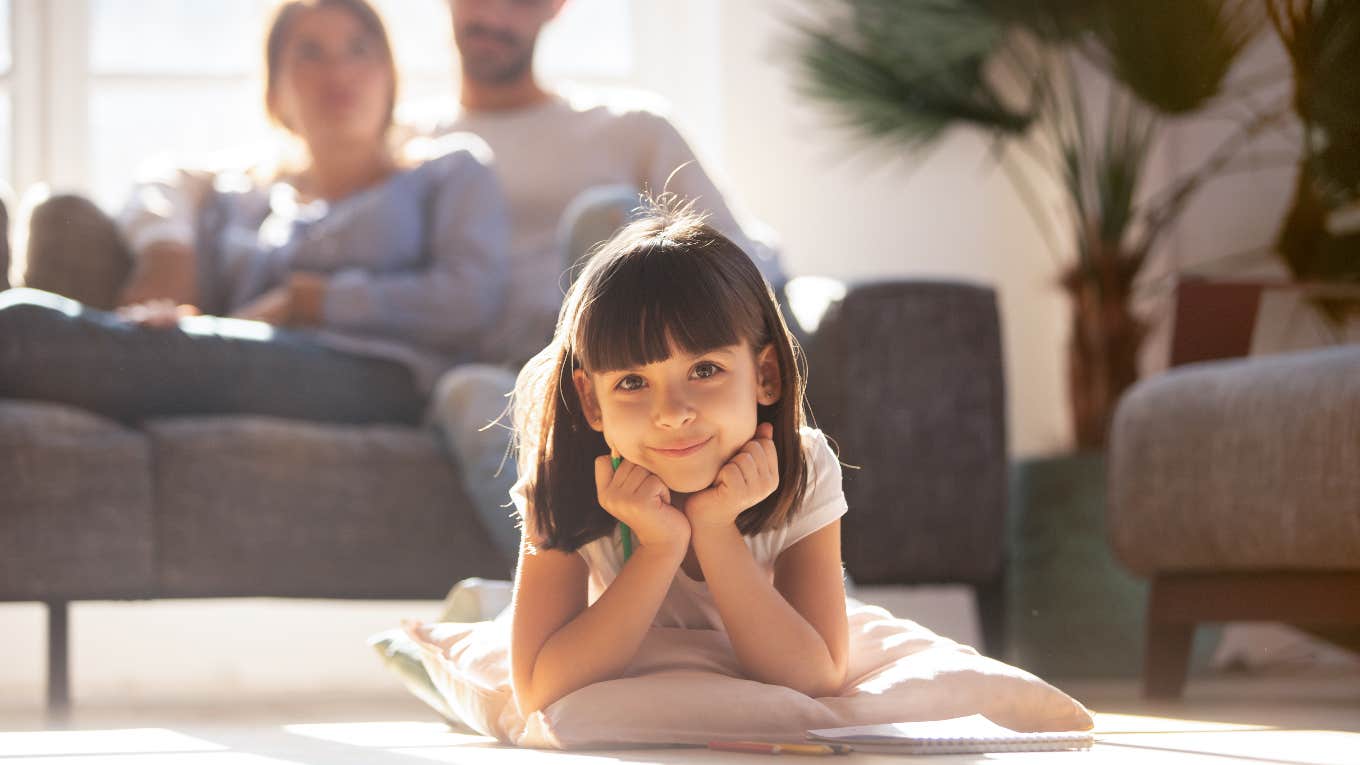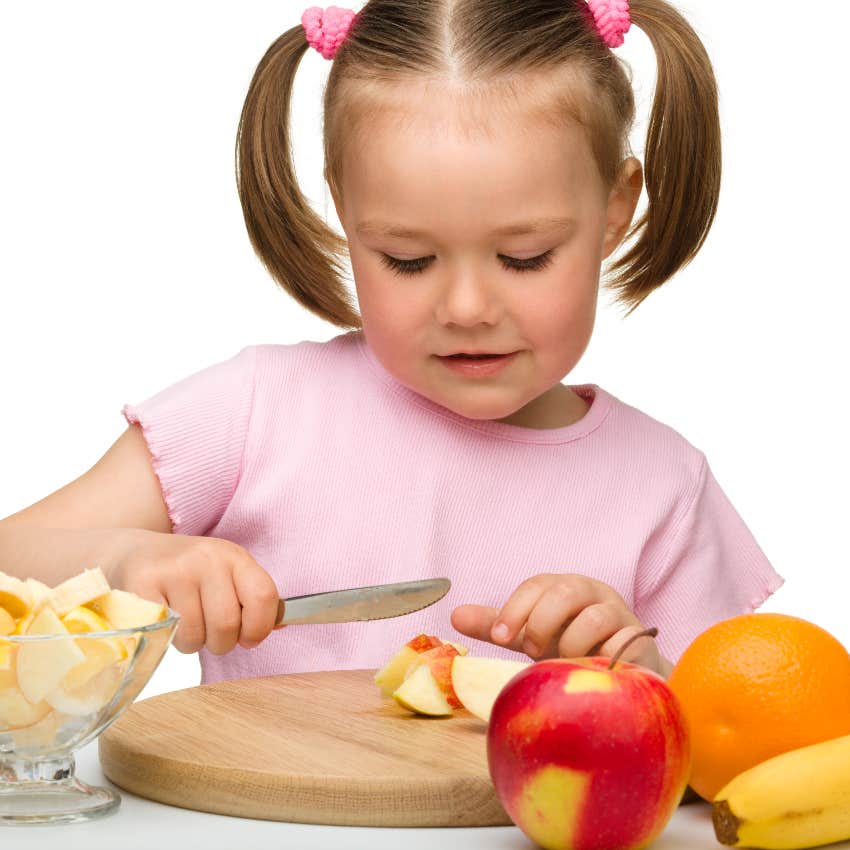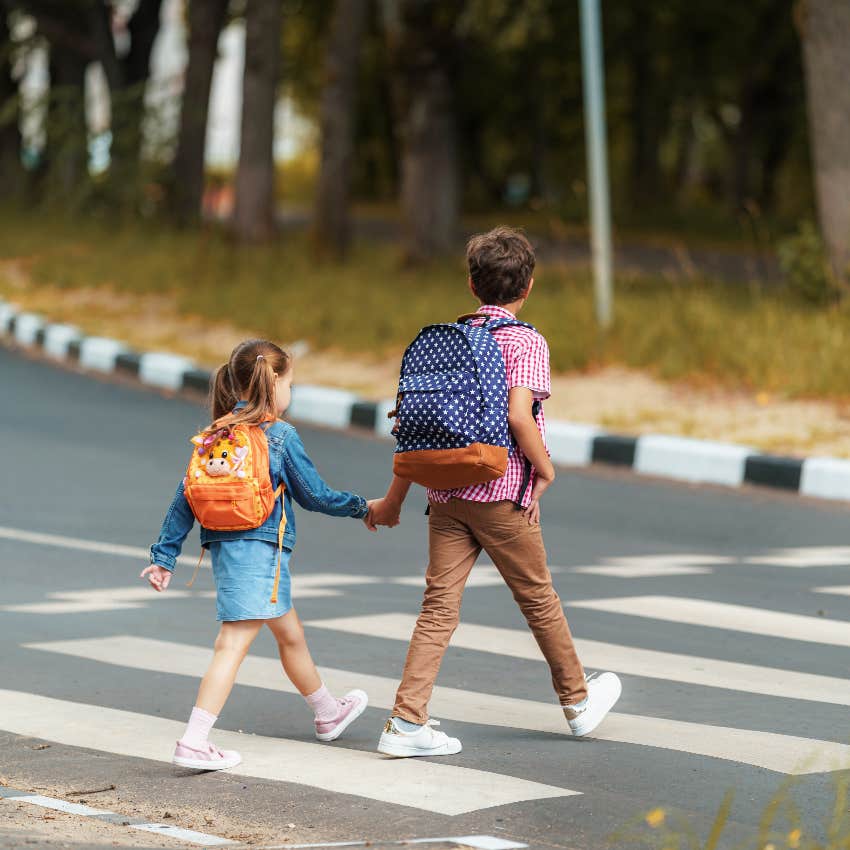Mom Explains Why It's Time For Parents To Be 'Lazier' — 'Everyone's Helping Their Kids Too Much'
Independence and autonomy is learned by doing.
 fizkes | Shutterstock
fizkes | Shutterstock Many of today's parents are doing all they can to be the most involved, dynamic parents possible. But are they taking hands-on parenting methods a touch too far?
One mom thinks so, and that many parents should reevaluate their approach. According to some studies, there's reason to believe she's right.
The mom explained why it's time for you to be a 'lazier' parent.
"You need to be a lazier parent," Leah Ova, a content creator and mom from San Francisco, bluntly declared in a recent video. She concluded after a friend she recently hosted from Spain marveled at how different their parenting was.
"My friend was like, 'Um, I'm doing something wrong,'" Ova recalled. When she asked her friend what she thought she was doing wrong, she explained, "'Your kids are so independent. They go make themselves food. They grab a snack."
Her friend's situation was familiar to all too many parents—if she didn't do the thing for her kid, it wouldn't get done at all.
"If she didn't make him a bagel, he apparently just couldn't have a bagel," Ova said. She gave her friend the advice she gave in her TikTok: "You just need to be lazier."
Ova claimed that 'everyone's helping their kids too much,' hindering their independence and burning out parents.
"I think everyone's helping their kids too much," Ova said. "What is the expression? 'The best form of parenting is high attentiveness but low interference?'"
She elaborated on this philosophy: "Be around. Be there if they need you," she advised, "but just be like, 'honey, I'm literally having a coffee right now; you can get it yourself.'"
Ova added that she has noticed many of her children's friends express shock when they're given autonomy at her house. If she tells them to help themselves to a snack, "they're like, 'Are you not gonna cut my apple?' And I'm like, do you not know how to eat an apple when it's not cut?"
 Serhiy Kobyakov | Shutterstock
Serhiy Kobyakov | Shutterstock
Mind you, she's not talking about little kids. Her oldest of three is a teenager, and it's not 4-year-olds who are going to friend's houses without their parents!
"There are 10-year-olds that don't know how to do that," she said in reference to the apple encounter. "You can always tell the kids whose parents are doing everything for them."
She wants parents to stop this—for their own benefit and their kids'. "I want everyone to know you can be lazier," she reiterated. "Honestly, it probably makes your kids better."
Research shows that independence and autonomy are vital to children's development, and many parents today hinder them.
It's easy to slag off Ova's advice as a privileged hot take from a parent who doesn't care enough to be involved, but the research is firmly on her side.
Child development experts say that letting kids problem-solve independently doesn't just teach them vital skills they need later in life — like conflict resolution and, yes, how to feed themselves a dang apple. According to developmental psychologist Mariana Brussoni, it also impacts their brain development, executive function, and social-emotional learning and bolsters their confidence and resilience.
Many older children and young adults today struggle with those last two attributes. Brussoni explained that things like separation anxiety and a fear of risk are not only natural but also part of evolution's way of keeping a kid safe.
But kids don't just grow out of those naturally — they have to unlearn them through independent activities like unsupervised play, walking to the bus stop alone, or, to use Ova's example, making their snacks. They can't begin this process of growing up, however, if their parents don't give them the leeway to do so.
 Alexander_Safonov | Shutterstock
Alexander_Safonov | Shutterstock
That, in turn, has been shown to damage their mental health. Scientists have attributed the staggering rates of mental illness among young people in part to a "decline in independent activity." So-called "helicopter parenting" is correlated with both anxiety and depression in teens and young adults.
This makes sense — when you realize you don't know how to do anything for yourself, it's hard to feel a sense of pride, security, and confidence in yourself and your abilities.
With parents as burned out as they are nowadays, having kids who can handle getting their own snacks also lightens the burden on moms and dads. It doesn't mean you let them juggle knives, of course. But "high attentiveness, low interference"? Ova is definitely on to something.
John Sundholm is a news and entertainment writer who covers pop culture, social justice, and human interest topics.

